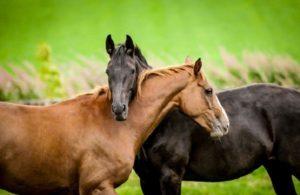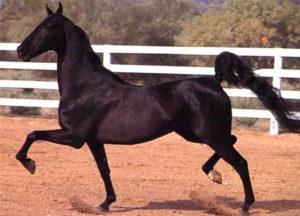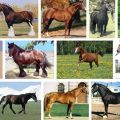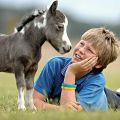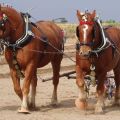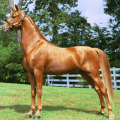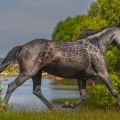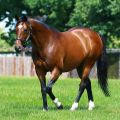What is the maximum speed a horse can develop and what the performance depends on
Several factors can be identified that affect how fast horses develop. It depends on the level of stress on the animal, breed and a number of other circumstances. You also need to consider the purpose for which the horse is raised. In particular, some animals are bred specifically for competition. Therefore, trained horses in running are noticeably superior to those used in agriculture.
Average speed of the animal while running
As indicated, the average horse speed is dependent on several factors:
- the presence and absence of a rider;
- characteristics of the breed;
- the presence of a carriage and others.
On average, horses of all breeds, devoid of additional loads, run at a speed of 15 km / h. This feature is also typical for animals that do not belong to race species.
Moving at an average speed, horses are capable of covering long distances. However, mounts reach their maximum at short distances. After that, the animal needs a long rest.
No rider
Workhorses have a strong build and short legs. In this regard, representatives of this breed run slowly. In animals intended for agricultural work, the average speed reaches 15-20 km / h. Racers without a rider have ways to develop about 40 km / h.
With a rider
The presence of additional load immediately affects the ability of the animals. Because of the rider, working animals raised for slow movement and high loads develop no more than 12-13 km per hour. Designed specifically for high-speed, short-distance races, horses can accelerate up to 20-30 km / h, depending on the breed.
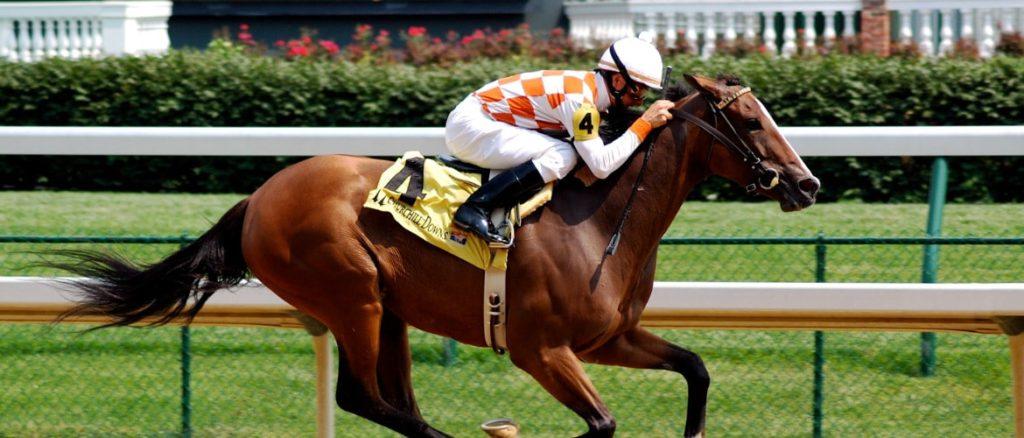
With a cart
The speed with which a horse runs with a cart also depends on the degree of workload of the latter. Moreover, in this case, representatives of draft breeds are considered, characterized by increased endurance. If the level of load experienced by the animal does not exceed 8% of the body weight, then the average speed of running with a cart is 10-12 km / h.
Factors affecting horse speed
The speed of the horse, in addition to the factors listed above, depends on:
- current health status;
- age;
- breeds;
- way of travel.
The fastest are animals that have reached 5-8 years of age. Younger racers raised for racing are also capable of performing well. But horses over eight years old begin to move more slowly.
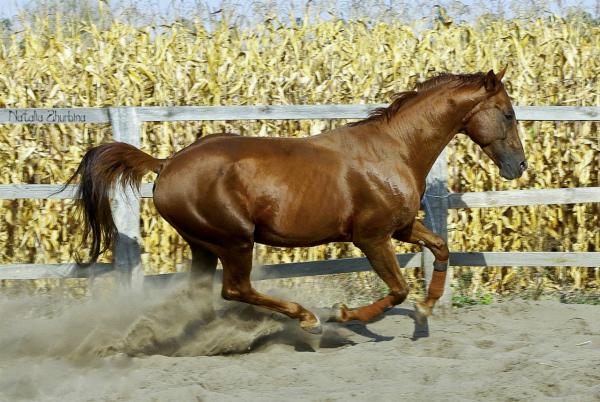
The main factor that determines the capabilities of an animal is the breed. Traction horses are capable of transporting large loads over long distances. However, these horses develop a low speed. Moreover, even prolonged training is not able to noticeably improve the performance of traction animals.
Race horses develop high speeds at which they run short distances. After that, the animals need a long rest.
Speed indicators of different breeds
The best speed indicators are shown by representatives of the following breeds:
- Thoroughbred horse. English breed of horses showing the best speed performance. This variety was specially bred for short distance races, so it is not used for other tasks. In part, these characteristics are due to the size of the lungs: according to this parameter, thoroughbred horses occupy a leading position among all existing breeds. Also, these horses are distinguished by a large and muscular body.
- Arab racing. This breed appeared in the middle of the first millennium on the territory of the Arabian Peninsula. The Arabian racehorse is compact in size, lean and lean in body, thin legs and small head.
- Sel (French racehorse). Representatives of this breed appeared in the 19th century. This variety was obtained by crossing an English thoroughbred and French horses employed in agriculture. Thanks to this, the mudflow is distinguished not only by its large size and the ability to run quickly, but also by increased endurance.
- Trotters (American, French, Oryol and Russian). In brackets is a list of breeds, taking into account the speed characteristics of horses.
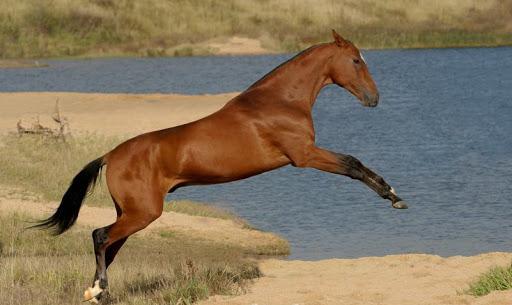
Among horse breeders, Russian trotters are very popular, adapted to the conditions of a long and harsh winter. This breed includes Don, Terek and Akhal-Teke horse varieties, which also demonstrate good ability to run quickly. Among horse breeders there is an opinion that speed indicators also depend on the color of the animal. The fastest are horses with an orange body. Next come bay, black and white. Among wild horses, representatives of the mustang breed stand out. These horses, which live on the North American continent, accelerate to 100 km / h.
The relationship of gait and speed
The gait is the manner in which the horse moves. That is, having determined the type of movement of the animal, you can understand at what speed the horse is moving.
Step
Walking is a simple and familiar way of movement for horses. The average speed that horses develop with this gait is 4-5 km / h. Some representatives of race breeds prefer to walk faster, developing up to 7 km / h. With such a gait, animals are able to travel long distances without getting lost.

Lynx
The lynx is divided into several types:
- quiet (9-10 kilometers per hour);
- medium (up to 13 km / h);
- fast (15 km / h);
- maximum (from 30 km / h and above).
This type of gait is characteristic of the above breeds of trotters.
Gallop
The gallop is considered the most convenient way of getting around for different breeds. In this manner, horses develop up to 35-45 km / h. The gallop is typical for thoroughbred horses, who switch to such a run a couple of minutes after the start of the movement.
Career
This manner is known as basting. Moving in a quarry, adult horses develop up to 54-60 km / h.
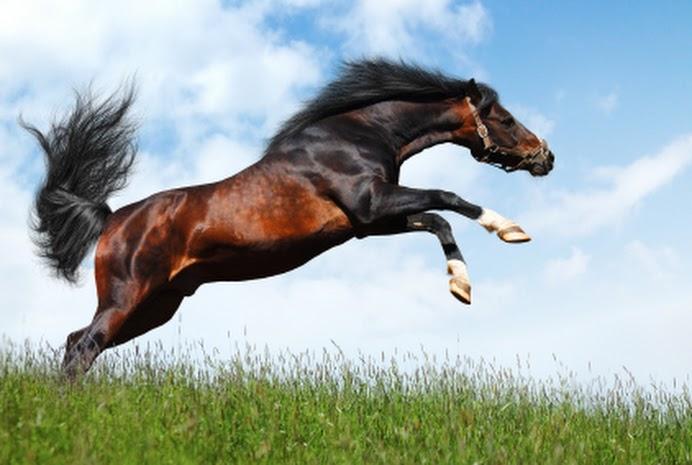
Amble
When moving in this manner, adult horses accelerate faster than trot, but move slower than gallop or quarry. Amble is characterized by the fact that animals move their legs synchronously. That is, both hind or forelimbs move at the same time. At other gaits, the animals alternately rearrange their legs.
World record holders
The following records have been recorded in the history of horse running speed registration:
- 69.69 km / h. Such a speed was able to develop a thoroughbred stallion of the English breed Beach Rackit. This record, which has not been broken even with the onset of the 21st century, was registered in 1945. In the early 90s of the last century, the stallion Onion Roll developed a similar maximum speed. However, the horse could not exceed this indicator.
- 69.3 km / h. The horse Siglevi Slave was moving at such a speed without a rider. This result was registered during the 804-meter race, which the horse covered in 41.8 seconds.
- 60.7 km / h. This record belongs to the stallion John Henry. This result was recorded during a race at a distance of 2.4 kilometers.
These records were demonstrated by purebred horses. Animals, during the examination of which "impurities" of other species are revealed, are not allowed to compete.
Despite the fact that speed characteristics directly depend on the breed of the horse, regular training and proper nutrition help to improve previously achieved performance. The racers get the shape they need for long distance races over three months or more. During this period, animals require high-calorie food and plenty of drink.
